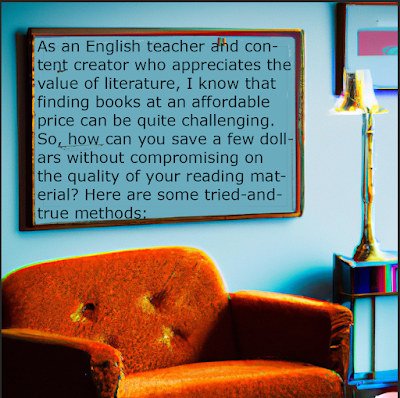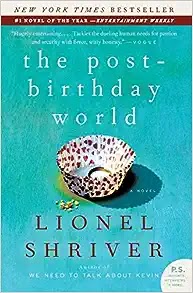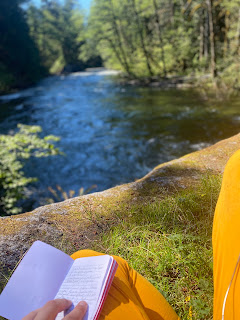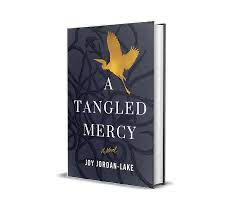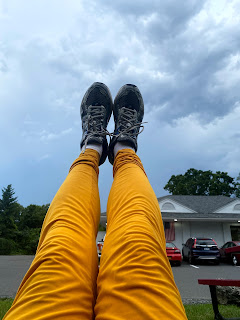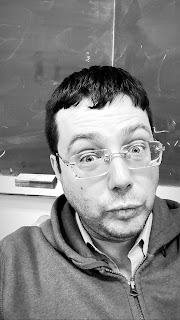In this post, I write a review of the novel A Tangled Mercy by Joy Jordan-Lake. Warning: spoilers are included in this review.
I Had Read Octavia E. Butler Recently
I had recently read Octavia E. Butler's novel Kindred. It's also a story that goes back and forth between past and present, and it's also about piecing together clues about family relations, enslavement, and how Black protagonists resisted their White enslavers. Butler's novel is about a Black novelist in 1970s Los Angeles who goes to the past in 19th century Maryland. This novel is about a White graduate student from Boston who travels to her mother's hometown of Charleston, South Carolina. I mention this because it shows my reading trajectory and how I picked up this book. Also, the novel, as the author states in an interview, took her twenty years to write, and through the course of its development takes on many twists and turns. As you will see.
Kate Drayton — Graduate Student from Boston
In A Tangled Mercy, Kate Drayton is the protagonist. But I found myself decreasingly interested in her. She's found herself in her deceased mother's hometown of Charleston, South Carolina. The novel is long, though. About four hundred pages, and it spends at least three hundred pages slowly revealing how Kate and her family's lives are interwoven with the events of an enslaved blacksmith named Tom Russell from 1822. And it ends — spoiler alert — with an explosive current event. All of the events, how they all fit together into one story, is a bit confusing, and I had to read certain parts twice, stop reading the book, put it down, and do some online background reading just to puzzle out what was happening.
The novel plays into the historical events of a slave revolt that occurred in 1822, called the Denmark Vesey Rebellion. The novel juxtaposes Kate's narrative with the third-person story of Tom Russell. In my mind, the Kate chapters had a female voice and the Tom chapters had a male voice. We find out that Tom Russell was hung and shot for being part of the revolt. As I said, I did get confused at this point, because this sticking point, Russell's death, is put forth as possibly not ever happening — and that Tom might have survived. Spoiler alert: he didn't survive. But I will leave it to you, the reader, to figure out his legacy.
Historical Events are Interconnected — But What Does it All Mean?
So there is a lot of historical backdrop here, the AME church in Charleston where the riot originated, the story of how Charleston became the port of entry for half of the new world's enslaved population, and lots of other details the author obviously had done tons of research to mine for a novel. But I found myself losing interest in Kate's ambiguity; her, mission. And more interested in the novel's minor characters. I liked the character of Gabe, a young boy she befriends. He is funny, quirky, and often has the right answers to what's going on around him.
I did like literary references in the book — and I laughed out loud when Kate and Scudder Lambeth are stuck in his pick-up truck discussing William Faulkner and Southern Literature. The character of Scudder, Gabe's uncle, is so much more eloquent than Kate. And the story offers a would-be love story that made me tear my hair out. Just go there! I thought. But perhaps it was not meant to be. Although Kate quotes Faulkner, I don't think she got the idea that the past seeps into the present. By the way — I do want a spin-off novel about either Gabe as a woke kid in South Carolina or about the subtle poetic genius of Scudder Lambeth.
And I liked how the city of Charleston is portrayed as a Southern town of secrets, gossip, and the like. My gripes were minor — like if you're going to dive into the ramifications of racial tension in America, go all the way. When Kate talks with Gabe and his father, both Black characters, she seems so tentative that it's like, OMG — get over your white fragility. But then I realized that's probably a realistic depiction.
Because A Tangled Mercy is not about the experience of being Black in America, however, it doesn't purport to be (although it does include Black history, as seen through Kate's eyes, and the third-person narrative about Tom Russell). It's a story about a woman who doesn't trust others, is fragile, and is trying to become woke. It's a story about familial disappointment, failure, and other adult worries and anxieties. As, that, the story is fairly decent. Kate Drayton reminds me of very articulate, educated people who are so caught up in their search for truth that when they discover something special, it's hard for them to see it. Even when it's right in front of their face.
Hints at Racial Tension Simmer Beneath the Novel's Historical Charm
I am not sure if certain plot points were included in later drafts — for example how Gabe is portrayed. I get that maybe including the bit where Gabe is thought to have a firearm in his pocket — and a policeman overacts — it's based on the lived experience of being Black in America — I thought the story could have explored this issue more deeply. Those elements seem forced and it felt misplaced, here. All American Boys by Jason Reynolds does a much better job at exploring this topic — and it also includes different point-of-view chapters. And while Lake, in her novel, alludes to Trayvon Martin, a boy who was gunned down when the skittles in his pocket was mistaken for a gun, it is an actual current event, its allusion in this novel confused me about the themes the novel wishes to convey. Why does the novel include these references? But why does it not go further?
I'd like to have seen Gabe's experience more, his point-of-view, rather than just being that intelligent, gifted kid who helps Kate gain clarity. Also — the novel alludes to an incident in 2009 when the Black historian Louis Gates, Jr., was arrested for trying to gain access to his home in Cambridge, Massachusetts. Someone called the cops because they thought he was a burglar. The novel mentions the incident, but Gates's name is not used. I appreciated the reference to current events, but it seemed a tangential mention and made me wonder what the book was trying to say.
The Novel Includes the 2015 Charleston Shooting
Now, I do want to say that when I read the novel, I did not realize that it includes events from the 2015 Charleston shooting, when a white supremacist, Dylann Roof, walked into the basement of the church and gunned down nine church members who were participating in a bible study: The Rev. Clementa Pinckney, Cynthia Hurd, The Rev. Sharonda Coleman-Singleton, Tywanza Sanders, Ethel Lance, Susie Jackson, Depayne Middleton Doctor, The Rev. Daniel Simmons, and Myra Thompson.
I had to stop reading the novel, at this point and read about how Joy Jordan Lake had decided to include the event. It seems that Lake had written her novel before the shooting; but, if you did not know that, you would have been surprised to see that Lake mentions the AME church, from the beginning, because it is the same church where the Vesey revolt was planned, and it is the site where the shooting took place. And the pastor has the same last name, Pinckney, that Lake uses in the novel. Lake was alarmed by this and almost didn't publish her novel, on that June day in 2015. Also, the murderer, Dylann Roof, knew of the importance of the church, which is why he chose it.
Lake says that her original manuscript was not the final product. The novel went through a lot of changes after the shooting. She almost abandoned the project altogether. But she decided to include it on the advice of her publisher. I mention this because if you did not know this backstory, like me, it'd catch you by surprise. And then, it made sense why Lake had included those references earlier, to Trayvon Martin, and Louis Gates, Jr — in relation to Gabe.
Also, Lake chooses to have Gabe witness the events of the church shooting; in reality, there is no evidence of a boy named Gabe at the church that day. So it made me wonder how much of Gabe was in the first draft of the novel, and how much the character changed after the Lake changed it because of the events of 2015. Gabe is a witness to the shooting in the novel, so we the reader, have a enactment of events, down to Roof's description, and details of the massacre.
Anyway — there is a lot to unpack here. I started a novel thinking one thing, and by the end, it became something else. Entirely.
I give the book three out of five stars. It aims for eloquence, but ultimately fizzles at putting a finger on the pulse of real events.




